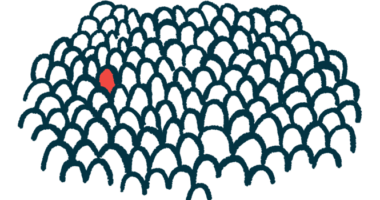Specific ICD-10 Codes for Dravet Ultimately Could Improve Patient Outcomes

Dravet syndrome now has its own global health statistics codes — known as “ICD-10” codes — that potentially could result in improved patient outcomes and enhanced clinical and scientific knowledge of the genetic disorder.
The National Center for Health Statistics has designated what are known as International Statistical Classification of Diseases and Related Health Problems (ICD) codes specifically for Dravet. Before, the disease was lumped in with a broad group of epileptic conditions with different causes and treatment strategies, under the code G40.8.
The ICD-10 codes are called that because they refer to classification codes listed in the 10th revision of the ICD, a medical classification maintained by the World Health Organization and distributed to countries internationally. About 27 countries use ICD-10 to document patients’ medical conditions for epidemiology, research, and health insurance billing and reimbursement. By definition, epidemiology is the scientific and systematic study, driven by data, of the frequency, pattern, causes, and risk factors of health-related states and events in specified populations.
The dedicated Dravet syndrome codes, which took effect Oct. 1, are expected to make it easier for those in the field to conduct research, determine prevalence and morbidity and mortality rates, and recruit patients for clinical trials. The codes also will help researchers and clinicians to track treatment outcomes and develop protocols for a standard of care.
The code designation was due to efforts by the Dravet Syndrome Foundation (DSF) and its medical advisory board, comprised of Dravet specialists.
“We truly appreciate the work of our medical advisory board members who contributed their extensive expertise, as well as the other community stakeholders who supported DSF in applying for and receiving these ICD-10 codes,” Mary Anne Meskis, DSF executive director, said in a press release. “Having these unique codes will lead to improved clinical care for our patient community, and will help healthcare professionals to better understand the lifelong impact of Dravet syndrome and associated health issues.”
The three new ICD-10 codes are as follows: G40.83 for Dravet syndrome; G40.833 for Dravet syndrome, intractable, with status epilepticus; and G40.834 for Dravet syndrome, intractable, without status epilepticus. Status epilepticus, common in Dravet, refers to epileptic episodes in which either an individual seizure lasts longer than five minutes, or many seizures occur close together without the patient recovering between them.
The new codes are designed to be used by healthcare professionals when caring for a Dravet patient. The DSF is encouraging those living with the disorder to help spread awareness of the additions by informing their providers.
“These ICD-10 codes have the potential to improve outcomes for individual patients and broadly increase our overall medical and scientific knowledge of Dravet syndrome,” said Veronica Hood, PhD, DSF research coordinator. “This represents an important step in the process of increasing awareness and improving treatments for patients with Dravet syndrome.”
The ICD is the bedrock for the identification of health trends and statistics globally, and the international standard for reporting diseases and health conditions. Diseases and conditions are listed in a way that allows for easy storage, retrieval, and analysis of health information for evidence-based decision making. Health information can be shared and compared among clinical settings, regions, and countries, and across different time periods.
The DSF’s announcement of the new codes comes during National Epilepsy Awareness Month, observed every November. Dravet syndrome is a severe type of epilepsy characterized by prolonged seizures that begin in the first year of life. The rare condition affects one in 20,000 to 40,000 people worldwide.






